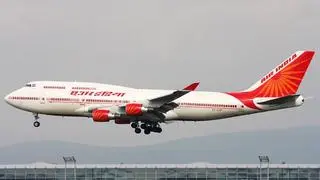After depressing headlines about the losses that the aviation sector is facing due to Covid-19 comes another worrying headline: Has the coronavirus pushed the global aviation industry back to the 1920s and 1930s?
This thinking highlights another aspect that the Covid-battered aviation industry will need to address — the way in which countries are handling flying in the prevailing pandemic. In the 1920s and 1930s, many countries around the globe imposed entry restrictions for airlines and their passengers. This is precisely what many countries are doing now to protect their citizens from the virus infection. They are putting in place barriers to entry and insisting on quarantine restrictions tailor-made to suit individual countries.
Eamonn Brennan, Director General, Eurocontrol, points out that in Europe, national borders and prominence of national governments are coming to the fore again.
Covid impact: Airline industry's passenger load factor falls sharply in July
Politicising the virus
“We have a common virus. Let us look at the reality. Everyone accepts that the virus is common. But we all have different responses on dealing with the virus,” Brennan says, adding, “The reality is that this virus has become politicised. Different states are taking different responses, sometimes for local reasons. What I would expect as a non-medical person is that in similar circumstances you should get a similar response, whether it be in Australia or Botswana.” Brennan was addressing a recent webinar organised by CAPA.
IATA working with WHO, civil aviation body on Covid testing regime
Jeff Shane, former General Counsel, International Air Transport Association (IATA), and former Under-secretary for Transport Policy with the US Department of Transportation, also feels that aviation is going back in time and adds that governments need to trust each other.
“People getting on the aircraft and coming into your country are not going to spread infection. That is a function of testing and protocols which could be established consistently and then governments will trust each other and allow flights to happen,” Shane says. He adds that as long as there are closed borders or quarantine measures that tantamount to closed borders, we are not going to see the recovery in aviation that we expected to see by now.
What these aviation experts are worried about is that the aviation industry may well be facing a situation which it took decades for it to work itself out of.
The Paris Convention of 1919 established that every state had complete sovereignty over its airspace, which meant no right to transit that airspace was allowed and there had to be negotiations for technical stops and transit rights. This continued till 1944, when the Convention on International Civil Aviation, drafted by 54 nations, was established to promote cooperation and “create and preserve friendship and understanding among the nations and peoples of the world.”
‘Chicago Convention’
Known more commonly as the ‘Chicago Convention’, this agreement established the core principles permitting international transport by air, and led to the creation of the specialised agency that has overseen it ever since — the International Civil Aviation Organisation (ICAO).
Shane points out that ICAO’s Council Aviation Recovery Task Force (CART) has done a good job in coming up with recommendations for governments, but feels that as these recommendations have been made by representatives of governments, they are not being implemented.
CART’s aim is providing practical, aligned guidance to governments and industry operators for restarting the international air transport sector and recovering from the impact of the Covid-19 pandemic on a coordinated global basis.
“Local politics trumped what came out of CART. Perhaps it is inevitable because, at the end of the day, it is the politicians who are on the hook for what happens. Suppose it turns out to be a mistake. Suppose, notwithstanding the testing, the virus is simply incapable of getting controlled through normal protocols and it continues to spread and infect? Politicians will be responsible for that,” Shane says.
Practical guidance from ICAO
While agreeing that each country laying down its own quarantine rules to protect its citizens from the pandemic is affecting the connectivity and survival of aviation, Nasim Zaidi, who was earlier India’s representative at ICAO, suggests that ICAO should immediately convene a global-level Ministerial conference to discuss the issues and to provide practical guidance to its member states to formulate simplified and harmonised quarantine rules. “This will help strike a balance between revival of aviation and looking after the health and welfare of the people,” Zaidi says, adding that the meeting could be held virtually.
Bolstering his argument, Zaidi recalls how post 9/11, ICAO was able to handle a wide variety of rules that different governments had drawn up, by coming up with a simplified and harmonised and globally acceptable regulatory framework on quarantine and travel restrictions. For example, duty-free purchases were allowed to be carried by passengers in tamper-proof transparent bags. Zaidi points out that post 9/11, ICAO had convened a global Ministerial-level meeting to find solutions to aviation security and other issues.
Wider cooperation needed
Nripendra Singh, Industry Principal, Aerospace, Defense & Security Practice, Frost & Sullivan, however, maintains it would be unfair to compare the current state of the aviation industry with what happened in the 1930s. He is of the view that aviation has matured at a much faster pace in the last two decades and globalisation has brought the world closer and exposed countries to opportunities beyond their own international boundaries.
“With the pandemic affecting different parts of the globe differently, recovery is still dependent on the arrival of a vaccine,” Singh says. Attached to the recovery of the aviation sector is also economic recovery. Says Singh, “Bringing civil aviation back on track will also enhance economic recovery and GDP growth to fall in line to sail through the crisis.”
Zaidi adds that there is a need to find a way of balancing the safety and health of global citizens while at the same time ensuring that global aviation, a key facilitator of global commerce and for connecting people, does not suffer any more irreparable losses.
Hence, globally the focus has to be on building consumer confidence, with governments, regulatory agencies and tourism bodies having to play a bigger role to restore travellers’ trust in the new normal in air transport.
“The focus in the last two decades has been primarily geared towards ‘Going Green’ and becoming environmentally sustainable. Now that countries have been hit hard by the pandemic, economic activities need to be restarted through wider collaboration and cooperation between stakeholders,” sums up Singh.







Comments
Comments have to be in English, and in full sentences. They cannot be abusive or personal. Please abide by our community guidelines for posting your comments.
We have migrated to a new commenting platform. If you are already a registered user of TheHindu Businessline and logged in, you may continue to engage with our articles. If you do not have an account please register and login to post comments. Users can access their older comments by logging into their accounts on Vuukle.